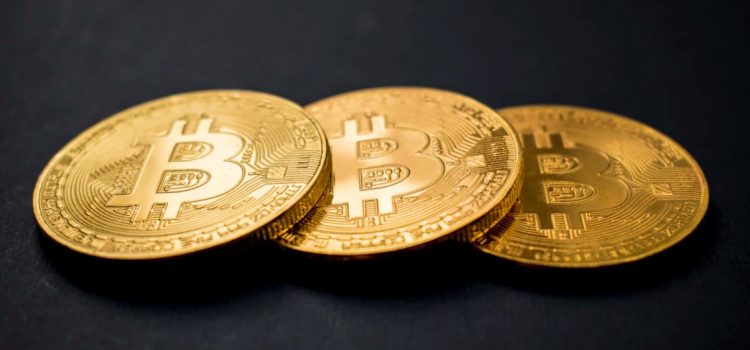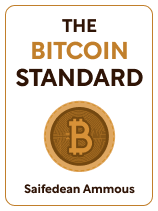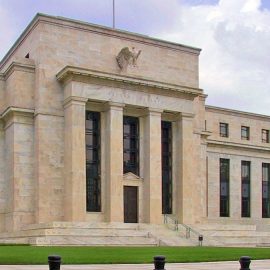

This article is an excerpt from the Shortform book guide to "The Bitcoin Standard" by Saifedean Ammous. Shortform has the world's best summaries and analyses of books you should be reading.
Like this article? Sign up for a free trial here.
Will bitcoin ever become the worldwide standard of value exchange? How close are we to bitcoin adoption?
At present, bitcoin is a long way from being accepted as an international form of money the way gold was universally accepted as money in the 19th century. Furthermore, bitcoin may never replace money, but it has some characteristics that make it—at least potentially—a better alternative to fiat.
Here’s what economist Saifedean Ammous has to say about adopting bitcoin.
Adopting Bitcoin
The bitcoin network is a decentralized electronic payment processing system, which processes payments using its own digital currency: bitcoins. Ammous envisions a future in which bitcoin may become the world’s international reserve currency, much as gold was in the 19th century. Under the gold standard, most countries pegged the value of their currencies to gold. A US dollar bill or a British pound note could be redeemed for a fixed quantity of gold, if desired. But Ammous says that in practice, few people carried gold money.
Instead, he says they used paper bills, bank notes, or checks for most transactions, while the actual gold remained in bank vaults. Of course, these bills, notes, and checks ultimately ended up in banks, resulting in banks owing each other money as their respective depositors did business with each other. Periodically, banks would ship gold bullion to each other to reconcile their debts, but a given bank might process thousands of deposits and withdrawals in bills and checks every time they sent or received a shipment of gold.
Similarly, Ammous explains that under a bitcoin standard, people would carry out most transactions using national or digital currencies whose value was pegged to bitcoin, rather than using bitcoins directly. Banks or other financial institutions would process these transactions and then settle their debts with each other using bitcoin, just as they used to do with gold. But whereas shipping gold from one bank to another was costly and time-consuming, especially if the banks were in different countries or on different continents, bitcoin transactions take only a few minutes and are unaffected by geographical distance and national boundaries.
Ammous doesn’t necessarily predict global bitcoin adoption, but he argues that a bitcoin standard has the potential to bring greater global economic prosperity because bitcoin has a number of properties that make it a better form of money than anything that’s been used as money in the past.
| How Close Are We to a Bitcoin Standard? For Ammous’s vision of a Bitcoin Standard to become reality, two things need to happen: One is that central banks around the world need to acquire bitcoin reserves, establishing it as the standard international medium of exchange, or at least one of the standard international mediums of exchange. But at this point, most central banks remain skeptical of bitcoin, if not downright hostile toward it. For example, when a recent movement toward embracing cryptocurrency in Kenya put pressure on the Kenyan central bank to invest in bitcoin reserves, the bank’s governor responded by saying the idea was insane. Most central banks are probably hesitant to work with bitcoin because it would require them to change the way they operate and impose more limitations on their ability to stabilize the national economy by regulating the money supply. Since central banks issue the nation’s currency—fiat money—they have almost unlimited control over the supply of that currency. But they don’t have that level of control over bitcoin. They could still influence its value by buying or selling bitcoin reserves or bonds and other securities valued in bitcoin, but their influence would be limited by the size of their reserves. From a central banker’s perspective, this inhibits the bank’s ability to do its job of regulating the money supply. From Ammous’s perspective, this isn’t a problem—it’s a solution to the problems inherent in fiat currency, as we’ll discuss later in this guide. The other prerequisite is that bitcoin or bitcoin-backed currencies need to be widely circulated. There are several ways this could take place: Governments could peg the value of their national currency to bitcoin (in which case these governments or their respective central banks would need reserves of bitcoins to back the currency). To date, no country has done this, although a few countries such as El Salvador and the Central African Republic have declared bitcoin to be legal tender. These legal tender laws establish bitcoin as an official currency alongside the respective fiat currencies in these countries. This could potentially serve as a preliminary step toward establishing a fixed exchange rate between bitcoin and the national currency, although neither El Salvador nor the Central African Republic has declared any intent to do so. Additionally, third-party payment companies could issue their own digital or physical currencies backed by bitcoin. Much like banks under the gold standard, these companies would accept each other’s currencies and convert them to bitcoin reserves. This is already happening to some extent. For example, “wrapped bitcoin” is a digital currency that can be exchanged for bitcoin at a 1:1 ratio but that is spent and received on a separate network from bitcoin itself. Similarly, users of Paypal, a third-party payment processor, can now transact in bitcoins on Paypal’s network. Finally, the majority of banks could start accepting bitcoin—or, equivalently, a large network of new bitcoin-based banks could arise. Then depositors could pay each other in bitcoin with checks or an electronic equivalent. The banks would handle the day-to-day transactions and settle their debts with each other using the bitcoin network. While there are some banks that accept bitcoin and other “crypto-banks” specifically for digital currencies like bitcoin, at present they seem to be the exception rather than the rule. |

———End of Preview———
Like what you just read? Read the rest of the world's best book summary and analysis of Saifedean Ammous's "The Bitcoin Standard" at Shortform.
Here's what you'll find in our full The Bitcoin Standard summary:
- Why bitcoin has the potential to replace the gold standard
- What makes bitcoin stronger than fiat money
- Why bitcoin will never be a global currency for day-to-day transactions






